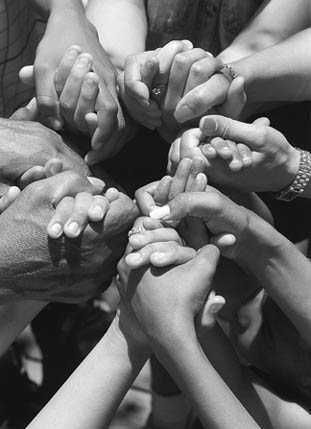Motivation
Balancing Compassion for Self and Others
How do you balance caring for others with caring for yourself?
Posted May 22, 2013

How do you balance compassion for yourself with compassion for others? How do you take care of your needs and desires yet also be attentive to the needs and desires of others? When confronted with a conflict between what you need and what others need how do you decide what to do? Any thoughtful, reasonable, and caring person must struggle with these challenges and conflicts. How do you manage them?

We live in a world where there is great and even overwhelming need. Both close to home and in far off lands people really need our help. Think of all of the people who suffer from the impact of war, hunger, poverty, disease, discrimination, disasters, and so forth. We are bombarded, not only in the press, but with requests from nonprofit, social service agencies, churches, and friends to give generously to those in need. Plus, you know that there are so many family, friends, neighbors, and others who could use your help too. You don't need to look very far at all to find people in your life who could use your efforts. Practical, financial, and emotional support is desired by so many close to home and afar too. Additionally, we value people who are selfless, giving, compassionate, and strive to be people for others.

Social science research has well documented that being gracious, generous to others, and engaging in volunteer and charitable works makes us feel good and can even improve our physical and mental health too. Research from some of my Stanford colleagues have found that all-cause mortality rates are lower among those who volunteer on a regular basis for the good of others. So, there are many advantages to being a person who gives to others, is compassionate, generous, and charitable. Helping others does in fact help us.
Yet, on the other hand, we also live in a world that constantly tells us that we need to do more for ourselves, carve out more “me time” and so forth. We are often told in the press and elsewhere that we should do more to make ourselves happy and satisfied. Plus our world is a competitive and even Darwinian place in that if you don't grab all that you can for yourself you'll suffer and be left out. Do you remember the famous line from the 1980's movie, Wall Street? "Greed is good!" It became the mantra for many and still is for lots of so-called "successful" role models.
But too much attention and focus on ourselves makes us selfish, uncaring, and narcissistic...and, in a word, a jerk!

So, how do we balance caring for others and caring for ourselves? This is very hard to accomplish in our culture and I wonder what strategies people use to find an appropriate and reasonable balance.
Of course, one needs to triage and make priorities. Additionally, you have to take care of yourself at least in minimal and appropriate ways in order to be able to be helpful to others. Plus, you have to have a good understanding of your values and be a good time manager to boot. You have to reflect on what kind of person you want to be out there. But this is never easy and I wonder how you find a way to best balance these often conflciting goals.
At the end of the day, I do believe that people, including young people, very much want to be compassionate to both self and others. If given a chance, good role models, and some opportunities to do so while reflecting on their experience they really do want to do the right thing and be people of compassion. I see this among my college students here at Santa Clara University and have faith that they'll find a balance to make the world better while helping themselves too.

So, what do you think? Any advice?


